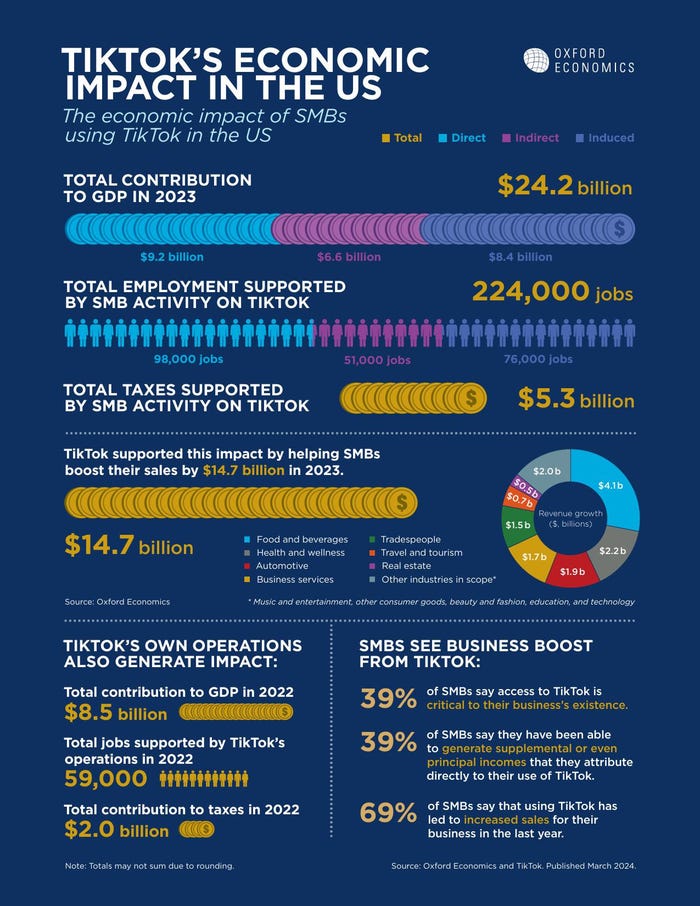US House approves divisive anti-TikTok lawUS House approves divisive anti-TikTok law
Supporters of the bill say it protects Americans from Chinese malevolence; opponents think it’s just another attempt by the US state to control the public conversation.
March 14, 2024

A new US law that has been in the making for some time has been overwhelmingly approved by the US House of Representatives, meaning it now moves to the Senate for further scrutiny. The Protecting Americans from Foreign Adversary Controlled Applications Act more or less does what it says on the tin.
“This bill prohibits distributing, maintaining, or providing internet hosting services for a foreign adversary controlled application (e.g., TikTok),” opens the official description of the bill. That ‘e.g.’ removes any ambiguity; this is a law designed almost entirely with one application in mind. No others are named. Here’s what the bill’s principal sponsor had to say after it was passed.
He explains that ‘existing statute’ designates four countries as ‘adversaries’: China, Russia, Iran and North Korea. The clear position is that any company whose ownership can be traced to any of those countries should be viewed with deep suspicion. Of course this already applies to Chinese telecoms vendors Huawei and ZTE, but not other Chinese companies such as Lenovo. Nonetheless, this statute seems to preclude the need for any ‘smoking gun’ evidence of the threat posed by a given company.
There is plenty of circumstantial evidence to support the claim, however. Back in 2022, FCC Commissioner Brendan Carr presented a bunch of it in a public letter. It leaned heavily on a scoop from Buzzfeed News, most likely fed to it by the US state, which presented a bunch of leaked recordings of TikTok internal meetings in which the ability of its Chinese employees to get hold of US user data was apparently discussed.
When the state seeks to increase its power it’s usually done in the name of safety, in this case data security. The other commonly stated reason to ban TikTok in the US is good, old ‘misinformation’. Those sneaky Chinese commies are probably using their unquestioned control over TikTok to poison the minds of innocent American youth, for whom it’s one of the most popular social media platforms.
As we have seen many times, most notably in the Twitter Files, the US state is very keen to control the public conversation that takes place over internet platforms. There is a school of thought that most, if not all, US-based platforms kowtow to the US security state in their ‘content moderation’ policies and that the ulterior motive for this law is to tackle the remaining one it can’t control.
Another prominent objection concerns the rights of US TikTok users, of which there are around 170 million. “TikTok raises special concerns, given the surveillance and censorship practices of the country that its parent company is based in, China,” says the EFF. “But it’s also used by hundreds of millions of people to express themselves online, and is an instrumental tool for community building and holding those in power accountable. The US government has not justified silencing the speech of Americans who use TikTok.”
TikTok itself has been lobbying extensively against this bill, insisting it’s not controlled by the Chinese and that US politicians are unjustified in their persecution of it. To further support the case that this bill does more harm than good, TikTok commissioned a report analysing its contribution to the US economy, an infographic of which you can see below.

So which is it? Do we accept the politicians' stated aim of trying to protect naïve American youth from the moustache-twirling CCP, or instead view this bill as yet another power grab by the US security state? Most likely it’s a bit of both. We’ll leave you with tweets from members of Congress who represent opposing views on the matter, followed by a video from independent Journalist Glenn Greewald, who is a critic of the US security state, in which he explains why he doesn’t think TikTok is a Chinese spy app.
About the Author
You May Also Like










.png?width=300&auto=webp&quality=80&disable=upscale)


_1.jpg?width=300&auto=webp&quality=80&disable=upscale)